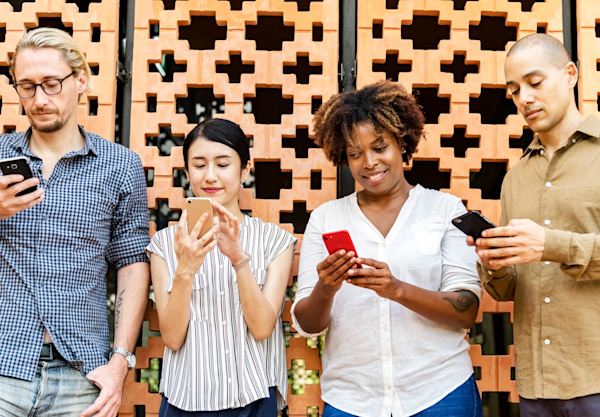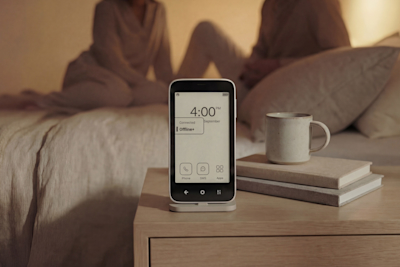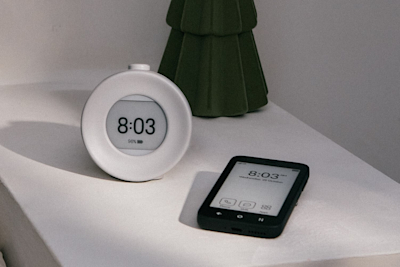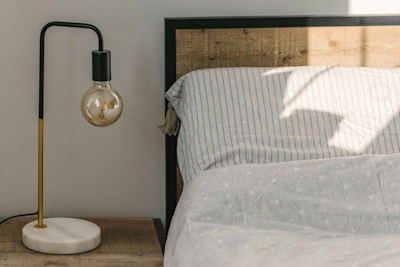
Why Didn’t They Reply Yet? Why Do We Ask These Questions?
Julie now lives in San Francisco after spending many years in Charlotte. Her passion for the psychological effects that are associated with technology stems from her battle with depression.
During her depressive episodes, she found technology to be overbearing, purposely not responding to texts and cutting herself off from outside communication. She even lost a few friends during the process. Due to her limited phone communications, friends assumed that she was just distancing herself– leading her to question why there is an unspoken phone etiquette.
From my experience, I’ve noticed that ‘phone etiquette’ has had a tremendous impact on human interactions. Friends get mad at each other when responses are not received immediately, relationships fall apart because a significant other may feel less valued due to slower responses and so on.
When it comes to social media, people are overly obsessed with the number of likes, followers, comments, and views associated with their posts. More likes and particularly more followers has become synonymous with having more friends. Having more views is associated with being more popular.
Personally, I started realizing that if I don’t receive a response in a timely manner, I get anxious. I would reread my texts multiple times and question if I said something wrong. I would even think that the other person might be ignoring me – thinking there was just no way they hadn’t seen my message yet.
It’s probably just paranoia.
In most cases, the other person did see my message but they may have been busy and simply ended up forgetting to respond. I typically wasted so much time pondering over why I didn’t receive a response while the other person probably just unintentionally forgot. I fell into the social media trap myself.
After posting something, I would constantly check to see if I got any notifications that translated into more likes, views, or comments. I felt disappointed in myself and frustrated that I cared so much about what other people thought.
Technology was created to enable better communication between people. It seems as though over time because of how technologically connected we are, people have just assumed that others can be reached immediately. Unspoken and largely negative phone etiquette has developed.
People expect immediate responses because it has almost become a way to show someone how much you love or care for them. If you are my best friend, then you would care enough to like my picture.
If you love me, then you should be responding to my text ASAP. This shouldn’t be the case, it’s ridiculous. People shouldn’t feel less valued or anxious just because of slower response rates or less likes.
A like or a quick response should not equate to caring or loving someone.
That being said, it is hard to change the unspoken phone etiquette since it is not a set of well-established rules. However, individually we can take certain actions to change our mindsets – so that we don’t feel the psychological effects that these rules are having on us.
A photo of three diverse people looking down at their smartphones.
Here are some useful tips to help you:
Wait at least ten minutes before replying to a message (time yourself).
Delete your social media account apps from your phone.
Abandon your social media accounts altogether (it’s possible, trust me).
Switch off your notifications (by far the easiest tip).
Don’t take your phone out of your bag even if you feel the urge to do so.
Try to remember that most of what you see online, is fake.
If you have to have your phone out, try to place it face down.
For instance, one day I left my phone at home and because I had no device to connect me with the online world, I was forced to interact with people that were physically there with me. I couldn’t use my phone as a way to avoid social interactions.
I noticed that as a result I was more present in the moment. I couldn’t see the notifications on my phone, I didn’t feel a need to respond to texts, worry about not receiving a response, or check social media.
It was a very liberating feeling.
Worry less, live more.
Additionally, I started asking myself questions like “Why am I checking my phone?” and “Why do I need my phone?”. For me, I need my phone mainly for emergencies.
Therefore, nowadays when I go out I put my phone on silent for notifications and texts, and then leave it in my purse. My logic is that if there is an emergency, then I should be receiving a call. If it is a text or social media notification, then it can wait. Just by taking these simple actions I’ve been feeling happier because I’ve stopped worrying about the meaning behind other people’s actions.
Related stories

Choosing a More Present Relationship With Mudita Kompakt
Explore how constant phone use during couple time quietly erodes intimacy in relationships and how Mudita Kompakt helps couples reconnect with intention.

How To Build a More Thoughtful Relationship with Tech in 2026
Build a more thoughtful relationship with technology in 2026. Learn how mindful tech use & mindful devices can help you reclaim focus, rest, and balance.

5 Things Sleep Experts Say We Still Get Wrong About Sleep
Are you making these 5 sleep mistakes? Learn what experts say about sleep trackers, workout timing, and why hitting snooze makes you feel worse, not better.
If you'd like to receive the best stories from our blog, keep up to date with our progress and get notified about our product releases and special discounts.